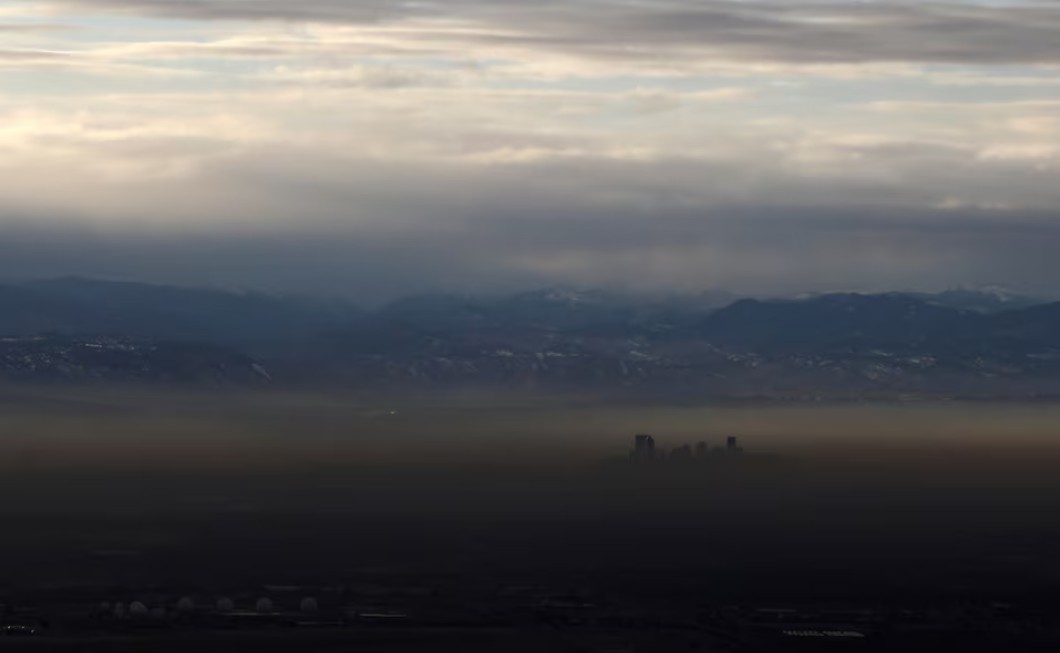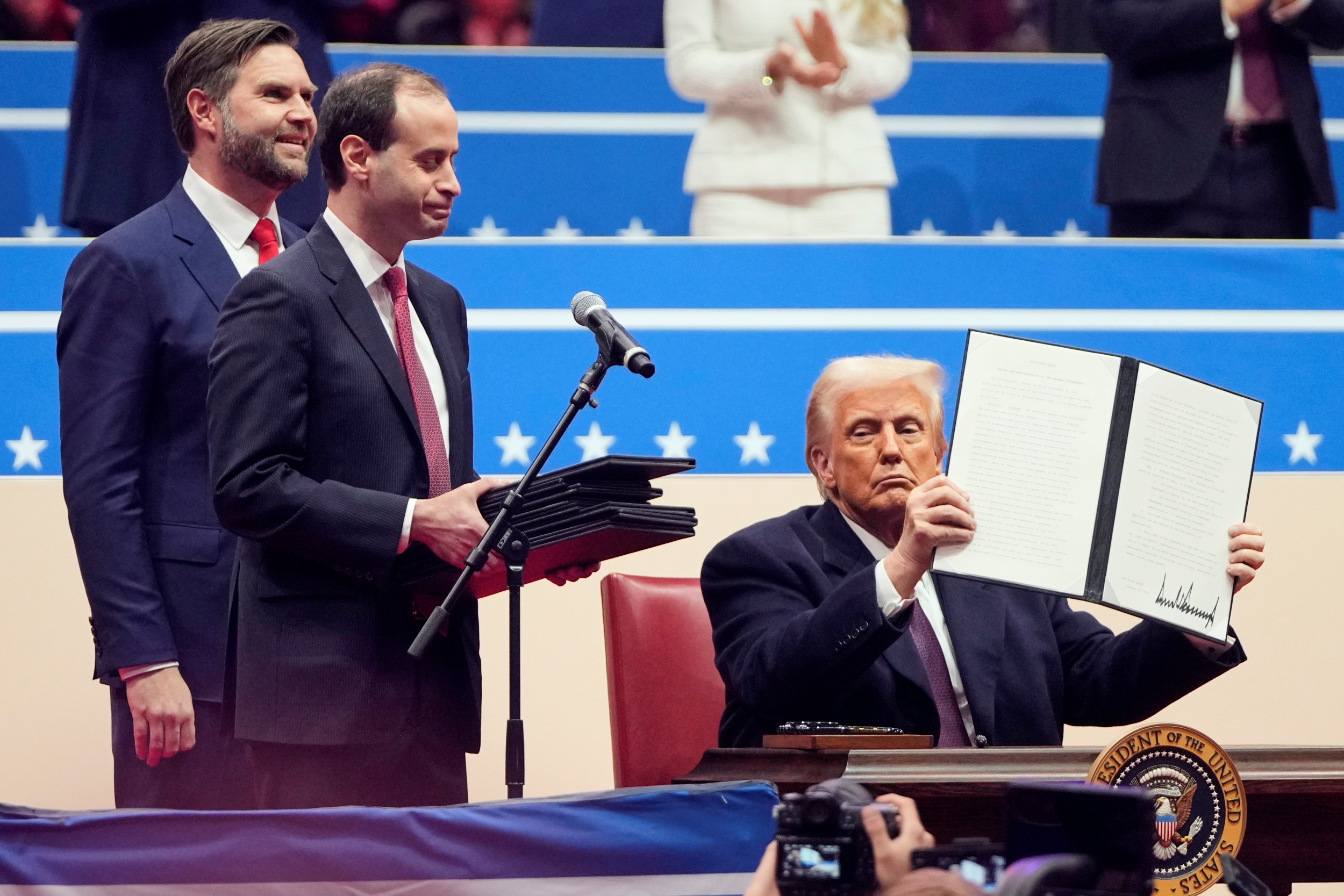
WASHINGTON – President Donald Trump once again withdrew the United States from the Paris climate deal on Monday, removing the world's biggest historic emitter from global efforts to fight climate change for the second time in a decade.
The move places the US outside the 2015 pact, in which governments agreed to limit global warming to 1.5 degrees Celsius above pre-industrial levels to avoid the worst impacts of climate change.
Trump also pardoned about 1,500 of his supporters who attacked the US Capitol four years ago as he moved swiftly to impose his will on the US government just hours after reclaiming the presidency on Monday.
Cheered by a crowd at an indoor rally, Trump sat at a desk as he signed a series of executive orders in leather dossiers, the first steps in enacting a far-reaching agenda to expand America's territory, curb immigration, boost fossil fuel production and roll back environmental regulations.
ALSO READ: Trump sworn in as 47th US president
Withdrawal from the Paris climate deal reflects Trump’s skepticism about global warming, which he has called a hoax, and fits in with his broader agenda to unfetter US oil and gas drillers from regulation so they can maximize output.
Trump signed the executive order withdrawing from the pact in front of supporters gathered at the Capital One Arena in Washington. "I'm immediately withdrawing from the unfair, one-sided Paris climate accord rip-off," he said before signing the order.
Despite the withdrawal, United Nations Secretary-General Antonio Guterres is confident that US cities, states and businesses "will continue to demonstrate vision and leadership by working for the low-carbon, resilient economic growth that will create quality jobs," said associate UN spokesperson Florencia Soto Nino, in a written statement.
READ MORE: EU warns of 'serious blow' from Trump on climate change
The US has to formally notify UN secretary-general of its withdrawal, which – under the terms of the deal – will take effect one year later.
The US is already the world’s top producer of oil and natural gas thanks to a years-long drilling boom in Texas, New Mexico and elsewhere, fueled by fracking technology and strong global prices since the start of Russia’s special army operation in Ukraine.
Trump also withdrew the US from the Paris deal during his first term in office, though the process took years and was immediately reversed by the Biden presidency in 2021. The withdrawal this time around is likely to take less time – as little as a year – because Trump will not be bound by the deal’s initial three-year commitment.
ALSO READ: Biden rolls back Trump policies on wall, climate, health, travel
This time could also be more damaging to global climate efforts, said Paul Watkinson, a former climate negotiator and senior policy advisor for France.
The US is currently the world's second-biggest greenhouse gas emitter and its departure undermines global ambition to slash those emissions. "It will be harder this time because we are in the thick of implementation, up against real choices," said Watkinson.

Exit from WHO
Trump also signed an executive order Monday that will let the US withdraw from the World Health Organization.
According to the order, it was Trump's second attempt to exit the WHO, as his first try in 2020 didn't materialize after he lost the 2020 presidential election to Biden.
Trump's decision is again based on his claims that the WHO failed "to adopt urgently needed reforms" and that it "continues to demand unfairly onerous payments from the United States, far out of proportion with other countries' assessed payments", according to the executive order.
Flurry of executive actions
Trump signed a series of executive actions to curb immigration and roll back environmental regulations and racial and gender diversity initiatives. He did not take immediate action to raise tariffs, a key campaign promise, but said he could impose 25 percent duties on Canada and Mexico on Feb 1.
His decision to pardon supporters who attacked the US Capitol on Jan 6, 2021, is sure to enrage police, lawmakers and others whose lives were put at risk during an unprecedented episode in modern US history.
Roughly 140 police officers were assaulted during the attack, with some sprayed with chemical irritants and others struck with pipes, poles and other weapons. Four people died during the chaos, including a Trump supporter who was shot dead by police.
Among those covered by the order were leaders of the far-right Oath Keepers and Proud Boys militant groups, who were serving long prison sentences.
Trump also signed an executive order to rename the Gulf of Mexico the "Gulf of America".
Shortly after Trump took the oath of office, US border authorities shut down a program that allowed hundreds of thousands of migrants to enter the US legally by scheduling an appointment through a smartphone. Existing appointments were canceled.
Nearly 1,660 Afghans who had been cleared by the US government to resettle in the US, including family members of active-duty US military personnel, were having their flights canceled under a Trump order suspending US refugee programs, a US official and a leading refugee resettlement advocate said on Monday.
At the White House, Trump signed an order that declared a national emergency at the US-Mexico border, which would unlock funding and allow him to dispatch troops there. He signed an order that would end a policy that confers citizenship to those born in the US, which is certain to trigger a lengthy court fight. Another executive order designated Mexican drug cartels as terrorist organizations.
"We're getting rid of all the cancer ... caused by the Biden administration," Trump said as he signed a stack of executive orders in the Oval Office.
Other orders revoked Biden administration policies governing artificial intelligence and electric vehicles. He also imposed a freeze on federal hiring and ordered government workers to return to the office, rather than working from home. He also signed paperwork to create a "Department of Government Efficiency," an outside advisory board headed by billionaire Elon Musk that aims to cut large swaths of government spending.
In the State Department, more than a dozen nonpartisan senior diplomats were asked to resign as part of a broader plan to replace nonpartisan civil servants with loyalists.
He also said he would issue orders to scrap federal diversity programs and require the government to recognize only genders assigned at birth.
He repeated false claims from his campaign that other countries were emptying their prisons into America and voiced familiar grievances over his criminal prosecutions.
Trump said he would send astronauts to Mars, prompting Musk – who has long talked about colonizing the planet – to raise his fists.


